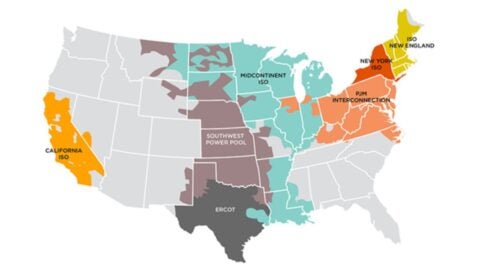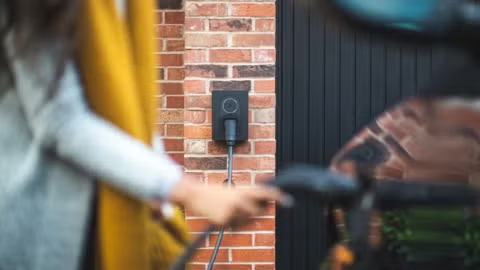An Executive Order is attempting to interfere with ironclad state authority to protect people from pollution
States have broad and bedrock authority to protect people from pollution – and President Trump’s Executive Order issued yesterday instructing the Attorney General of the United States to interfere with foundational state prerogatives to protect people from harm cannot change that.
The Executive Order was one of four the President signed yesterday. It is revealing that this order attacking state action came in tandem with another Executive Order that showcased his efforts, certain to fail, to force the American people to use expensive and high-polluting coal. That coal order would make President Trump squarely responsible for imposing a massive tax on the American people in the form of higher energy prices, as it is well established that coal power is costly before even factoring in its roles in contributing to deadly soot and smog and in fueling the deadly fires, heat waves, and storms caused by climate change.
Even as President Trump seeks to abuse his authority and impose the high costs of pollution and expensive coal-based electricity on the American people, states have core authority to protect millions of people from both harms. As the Supreme Court has long explained, under the U.S. Constitution, states have the fundamental authority and obligation to “guard and protect” the “safety and health” of their people. The U.S. Climate Alliance — a bipartisan coalition of governors — has underscored that the “federal government cannot unilaterally strip states’ independent constitutional authority” and states “will keep advancing solutions to the climate crisis that safeguard Americans’ fundamental right to clean air and water, create good-paying jobs, grow the clean energy economy, and make our future healthier and safer.”
There are three key things to know:
Judges appointed by Republican Presidents rejected efforts in the first Trump administration to attack state laws protecting people from climate pollution
Led by Jeff Clark, who later sought to use the U.S. Department of Justice to overturn the results of the 2020 Presidential election, the Trump Justice Department filed a lawsuit in 2019 attacking the constitutionality of California’s collaboration with Quebec to carry out its cap on climate pollution. Federal District Court Judge William Shubb, appointed by President George H.W. Bush, issued an extensive order granting California’s motion for summary judgment and tossing this lawsuit.
As recognized by conservative Supreme Court Justice Neil Gorsuch, states have broad authority to advance clean energy – notwithstanding President Trump’s Executive Orders overlooking America’s key sources of energy, solar and wind
A recurring theme in President Trump’s policies is his blatantly irrational claim that the U.S. is facing an energy emergency at the same time he seeks to exclude solar and wind as energy resources. As with his Day One Executive Orders, President Trump’s attack yesterday on state leadership speaks of energy in myopic terms, classifying “domestic energy resources” as “particularly oil, natural gas, coal, hydropower, geothermal, biofuel, critical mineral, and nuclear energy resources.”
But last year – in 2024 – solar and wind produced more U.S. energy than coal. Further, the President is obstructing wind energy through a reckless ban on all federal approvals for new onshore and offshore wind. If there is any energy emergency, it is the crisis President Trump is creating by obstructing low-cost clean energy.
Protections that provide for clean energy are in place in 28 states and D.C., and numerous states have clean energy goals and clean energy standards including requirements or goals for 100% clean energy.
In 2015, then-judge for the U.S. Tenth Circuit Court of Appeals Neil Gorsuch – now a Trump-appointed Supreme Court Justice – firmly rejected efforts by right-wing organizations to overturn Colorado’s path-breaking clean energy standards.
The Trump administration’s attack on EPA’s fundamental responsibility to address the climate pollution harming public health creates a wide field for sweeping state action
EPA leadership on climate is the principal legal argument that large polluters have long relied on in attempts to discourage state leadership on climate pollution. That was the case in the Supreme Court’s ruling in AEP v. Connecticut that Connecticut, New York and other states could not compel power company AEP to address its climate pollution. It is likewise the focus in the efforts of large polluters to repel state climate superfund laws.
The Trump administration’s attack on EPA’s fundamental responsibility to address harmful climate pollution opens the field for more forceful state leadership. Jeff Holmstead, an industry attorney and a former EPA senior official in the George W. Bush administration said as much in an interview about the Endangerment Finding – EPA’s determination that climate pollution endangers human health and safety. Holmstead told Axios news that, “There is great concern that reversing the finding would open the door to a lot more nuisance lawsuits against all kinds of industrial companies — and it would eliminate one of the best arguments that oil companies have used to get lawsuits against them dismissed … There is also concern that an effort to overturn the endangerment finding will not hold up in court.”
While Jeff Clark is now back in the Trump White House and has already expressed his support for more unlawful activity, bedrock U.S. law respects states’ rights to protect people from pollution and to advance commonsense solutions that are clean, affordable and reliable.












